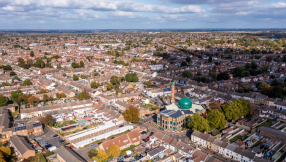
A special sniff test used to see how a child reacts to different smells may be used to diagnose autism, researchers said in a study that was published in the journal Current Biology.
After conducting a trial, researchers in Israel found that, compared with children without autism spectrum disorder (ASD), autistic children spend more time inhaling unpleasant and pleasant scents.
Researchers of the Weizmann Institute of Science are optimistic that the sniff test can help identify ASD in non-verbal children.
The researchers wanted to create a diagnostic test based on how some people with ASD react to certain scents. In the trial, the researchers enlisted 17 boys and one girl, with autism and the same number of children without autism.
The children, aged seven years on average, were given pleasant and unpleasant smells by means of a special tube positioned right under their noses. The test lasted for 10 minutes while the young participants were allowed to watch cartoons, as reported in WebMD.
When there were changes in the smell from good to bad, children who were developing normally quickly changed where to sniff, at a speed of about a third of a second. In contrast, the autistic group did not react the same way.
Using the sniff test, researchers were able to identify children with autism 81% of the time.
The research team said the sniffing test had an upside: it wasn't dependent on a child's ability to communicate, which suggested that the test could be used on children at an early age.
However, the team still needs to know at what age children generally respond to smells before making the sniffing test a diagnostic technique, BBC News quoted Liron Rozenkrantz, one of the researchers and a PhD student, as saying.
Meanwhile, The Independent quoted Dr. Judith Brown of the National Autistic Society in the U.K. as saying that getting a diagnosis for ASD was an important step to "unlocking vital support services which can make a huge difference to people on the autism spectrum and their families."













